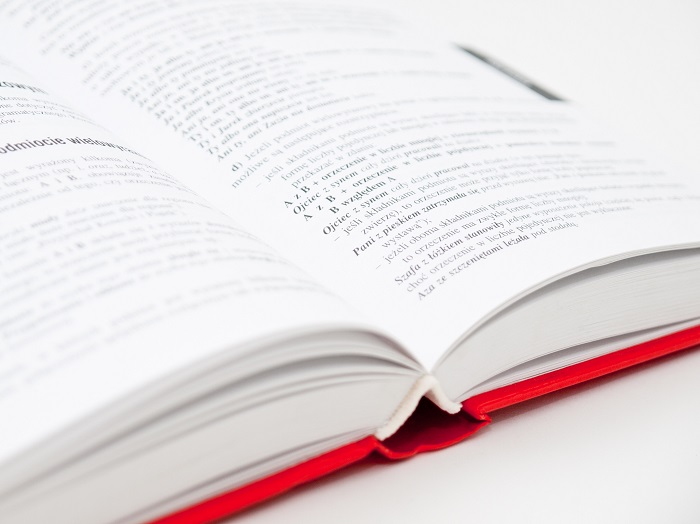This article focuses on providing you a helping hand in how to write a book review. It extensively discusses the process of writing the review. Moreover, it gives some strategies which can help you to know how to write a book review in a professional manner.

A Book Review | Definition | Explanation
Book review is generally, as the name shows, a critical evaluation of a book. It makes a learned and sound argument—an opinion based on and supported with ample proofs and evidences. Most importantly, a book review is not just a summary or an account of the central idea of the book.
In a book review you converse with the writer and the reader at the same time. You give your own opinion based on logic for or against whatever has been claimed or discussed in the book. You throw light on the positive and negative aspects of the work. Make sure you give your commentary or opinion in clear and straight forward manner in formal academic style. It must contain a thesis statement supported by the body paragraphs. Further your review must have a logical and satisfying conclusion.
Remember to keep your book review within the accepted limit of 1000 words. Reviews longer than 1000 words are generally unacceptable. They make the analysis and evaluation of the text tiring and boring, thus losing the interest of the reader. Hence it is academically discouraged to produce longer and complex reviews.
Books related to different genre have reviews that vary in subject, style, and tone. Despite all these, there are some features that are common to all types of books review.
- First of all, a review is a short and concise summary of the entire text of the book. It covers all the content dealt with in the book. It gives a clear description of the topic, point of view, argument, purpose, and perspective of the book.
- Second, a review analyses and evaluates the content, and gives a critical assessment about the merits and demerits of the book content. Here you give your own understanding as well as reactions to the book: what grabs your attentions, what makes you feel inclined to stop reading the text further, what you think is impress or repulsive about the content, and what is that, which added to your knowledge and understanding.
- Thirdly, you express your final conclusive opinion about whether or not the reader will like it. Likewise, you clearly tell whether or not you recommend it to the readers.

Questions to ponder upon before you write the Review
There are no hard and fast rules to writing a review. However, a lot of reason and analytical works if needed before you actually plunge in the writing process. Basically, the process of how to write a book review involves two vital steps (a) developing an argument and (b) making that argument in an organized manner. Before writing a review, you need to find answers to the following questions:
- What is the main argument or thesis of the work? What is the author’s target to achieve? What idea do they want to convey? Who do you see the idea in your world around you? Is the book successful in achieving the intended goal?
- What exactly is the genre of the book?
- What is the author’s approach in the book? Is it analytical, descriptive, topical, or chronological?
- Is that author successful in achieving the target?
- What is the author’s point of view?
- What evidence does the author use to support the argument?
- Do you think the evidence is convincing?
- Do you have any other counter evidence?
- What is the structure of the argument? Is it sensible and convincing?
- What is the impact of the book on your knowledge and thinking?
- Do you recommend the book for the readers?
Besides the book content, give some information about the author and their background environment and circumstances—personal, social, political.
- Who is the author?
- What are their political affiliations?
- How was their personal and social life?
The Writing Process | How to Write the Book Review

The first and foremost step in writing the review is to come up with a powerful thesis statement. Jot down your notes to outline the supporting arguments to add strength to your thesis statement. Be logical in your approach. Begin with emphasizing the argument used by the author. This gives you a takeoff position from where you develop and start you own argument. This helps you avoid abruptness and confrontation with the text, the author, and sometimes with the sympathetic reader. What to follow in the review structure is give below:
Introduction
You may choose to begin your review with some anecdote or some catchy quip that is both concise and sublime depending on the nature of your reader as well as argument. Generally, introduction contains the following:
- Title of the book and its main theme
- Name of the author
- Relevant information about the author
- Genre of the book
- The thesis or central idea of the book
- Your thesis or final word about the book
Summary of the Content
Make sure that the following when you write the summary of the content:
- This should be brief.
- Back up your assertion with solid evidence from within the book.
- Give more attention to the content if you are writing the book review for your colleagues who supposedly haven’t read the book.
- If you are writing the review as your course assignment, which means your reader has already read the book, you may explore the deeper and subtler points and make your own arguments.
Book Analysis and Evaluation
Following are some points to ponder upon when analyzing and evaluating the book:
- Organize your review into paragraphs each with a single argument.
- Organize the paragraphs on the basis of theme, methods, or other elements used by the author.
- Keep the comparisons brief and to the point.
- Don’t use excessive quotes.
- Giving authorial versions in your own words is more preferable that the direct quotes.
Conclusion
Take care of the following in your conclusion:
- Restate your thesis to give your final word about the book.
- Never introduce any new idea or evidence in your conclusion
- If you do give new idea, it must be in the form of future recommendation and possibilities.
- Make sure your conclusion has a balance focus on the negative and positive aspects of the book. Focusing or ignoring either of the two imbalanced and lopsided.
Writing Book Review of a Fiction Book
Make sure to include the following:
- What is the main story about?
- Who are the central characters?
- What is the credibility of the characters?
- How do the main characters contribute to the development of the story?
- Did the main character have to face some conflict | problem | adventure?
Relate your Personal Experiences
- Which character do you appreciate the most? Reasons?
- Can you relate to story or some character?
- Have you ever been in a situation similar to the ones the characters of the story are in?
Give your Opinion
- Did the book appeal to you? How? | Why?
- What portion, part, or event did appeal the most to you?
- What part did you like the least? Why?
- What would you change in the story-line if you could?
Give your Recommendations
- Would you recommend this book to the readers?
- For what type of readers this book is meant?

REMEMBER…!
- Never underestimate your caliber. Don’t be intimidated by the authorial authority—even their works can have shortcomings.
- Never review books by authors from your social circles or by those you love, hate, or are acquainted to.
- Start your book review skill by actually doing it. You can start from writing for local newspaper—free of cost, of course.
- The last but not the least! Never underestimate yourself. Feel confident in giving your judgement. After all it is your own judgement that is not necessarily right or wrong.
Our Social Presence
https://web.facebook.com/ewriter29/
https://www.linkedin.com/company/52134541/
Relevant Posts
https://www.ewriter29.com/skills/writing-skills/verb-categories/
https://www.ewriter29.com/skills/communication-skills/composing-the-message/





Today i attended the class of Communication skills. In the start of sir introduced himself. Then he motivated us to introduce ourselves after this sir taught us about communication skills. Communication is exchange of ideas between two or more than two people or objects on any topic. If a person with a knowledge of economy, maths or any field but he has zero communication skill then his knowledge will be multiply by zero
As i studied most of your notes it’s so much good and informative very well managed sequential and going through all topics step by step was quite easy and very easy to learn.
I expect more further progress and sharing similar content like you already had. I appreciate the efforts allot. It will be quite good if there is summery down each of the topic bit compulsory but for ease of study in less time.
Hope for the best
Gerund: 1- Before leaving the room he turned off the lights 2- I regret leaving school so young. 3- My pet’s favourite activity is sleeping. 4- Riding horses is my hobby. Infinitives: 1-Do you swear to tell the whole truth? 2- We tried to confuse the enemy. 3- I have some clothes to wash. 4- His ambition is to fly plane.
In this blog post I learnt how we say one sentence into different ways without changing its sense and how we change the form of sentence without altering its sense. will definitely benefit from the site for grammar material, and would also recommend to others for grammar and communication skills content. Thank you ewriter29